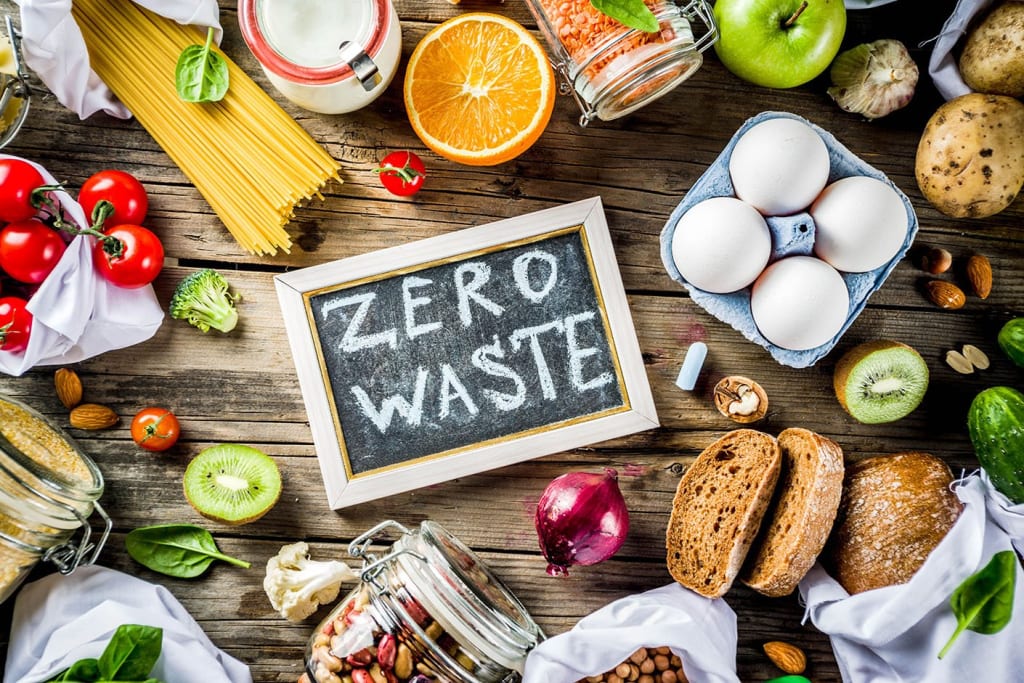
Food waste is a significant issue that has been gaining more attention in recent years. According to the Food and Agriculture Organization (FAO), one-third of all food produced globally is lost or wasted each year, which is equivalent to 1.3 billion tons. This is a major problem, as it not only contributes to environmental degradation but also exacerbates food insecurity and poverty.
Food waste can be defined as any food that is discarded, lost, or uneaten. It occurs at every stage of the food supply chain, from production and distribution to retail and consumption. Food waste has a significant environmental impact, as it contributes to greenhouse gas emissions, water and land use, and biodiversity loss. In addition, food waste has social and economic implications, as it increases the cost of food and exacerbates poverty and hunger.
To address the problem of food waste, effective management strategies are needed at all stages of the food supply chain. The following are some key strategies that can be implemented to reduce food waste:
Improve production and distribution practices: One way to reduce food waste is to improve production and distribution practices. This can include reducing crop losses due to pests, improving storage and transportation methods, and using more efficient packaging and labeling.
Promote sustainable consumption: Another key strategy for reducing food waste is to promote sustainable consumption. This can be done through education and awareness campaigns that encourage consumers to purchase only what they need, to store and prepare food properly, and to compost or donate any excess food.
Implement food recovery programs: Food recovery programs are another important strategy for reducing food waste. These programs involve collecting and redistributing excess food to those in need, such as food banks, homeless shelters, and other community organizations.
Establish policies and regulations: Governments can also play a role in reducing food waste by establishing policies and regulations that promote sustainable food production and consumption. For example, some countries have introduced taxes on food waste or have implemented regulations that require businesses to donate or compost their excess food.
Encourage innovation: Finally, innovation is another key strategy for reducing food waste. This can include developing new technologies and methods for food production and preservation, as well as creating new markets for imperfect or surplus food.
Despite the potential benefits of these strategies, there are several challenges to implementing them effectively. One of the main challenges is the lack of data and information on food waste at different stages of the food supply chain. Without accurate data, it is difficult to identify where food waste occurs and to develop effective solutions.
Another challenge is the lack of infrastructure and resources for food recovery and redistribution. Many food banks and other organizations that could benefit from excess food do not have the resources to transport, store, and distribute it effectively.
In addition, there are cultural and social barriers to reducing food waste. For example, in some cultures, it is seen as impolite or wasteful to leave food uneaten, even if it means overeating or throwing away excess food.
Despite these challenges, there are many organizations and individuals who are working to address the problem of food waste. For example, the Food Recovery Network is a non-profit organization that collects and redistributes excess food from college campuses to those in need. Similarly, the Zero Waste Scotland program provides funding and support to businesses and organizations that are working to reduce waste and promote sustainability.
Food waste management refers to the processes, practices, and policies aimed at reducing or eliminating food waste throughout the food supply chain. It involves various stakeholders such as producers, processors, retailers, consumers, and policymakers working together to prevent, reduce, or recycle food waste. Effective food waste management is essential to achieve sustainable development goals, promote food security, and mitigate the negative impact of food waste on the environment and society.
To manage food waste effectively, various strategies can be adopted at different stages of the food supply chain. At the production stage, sustainable agriculture practices such as precision farming, crop rotation, intercropping, and agroforestry can help reduce food waste. These practices can improve soil health, reduce the use of synthetic fertilizers and pesticides, and increase the yield of crops. In addition, innovative technologies such as drones and satellite imaging can help farmers monitor crops and identify potential problems such as pests and diseases, allowing them to take action before significant losses occur.
At the processing and manufacturing stage, the adoption of lean manufacturing principles can help reduce food waste. This involves optimizing production processes to eliminate waste and improve efficiency. For example, manufacturers can reduce the amount of waste generated during processing by using more efficient equipment, reducing the amount of energy and water used, and optimizing the use of raw materials. In addition, innovative packaging technologies such as intelligent packaging and active packaging can help extend the shelf life of food products and reduce food waste.
In conclusion, food waste is a significant problem that has serious environmental, social, and economic implications. To address this problem, effective management strategies are needed at all stages of the food supply chain, from production and distribution to retail and consumption. While there are many challenges to implementing these strategies, there are also many opportunities for innovation and collaboration. By working together, we can reduce food waste and create a more sustainable and equitable food system for all.





Comments
There are no comments for this story
Be the first to respond and start the conversation.